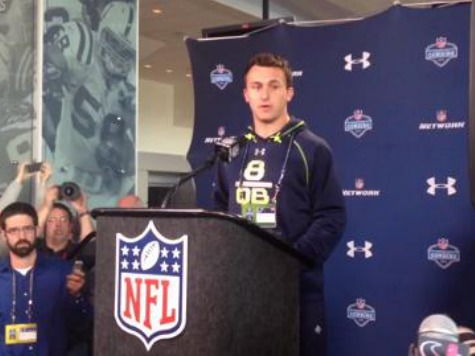NFL players and fans alike complained about the lavish salaries that first-round draft picks used to receive under the old collective bargaining agreement, but the current rookie wage scale, which was implemented after the 2011 Collective Bargaining Agreement, may be why college players are now leaving school early to flock to the league en masse. And college football programs are worried that this could ruin their game.
Under the old system, top picks could get $70 million contracts, and underclassmen had incentives to stay in school to improve their draft stock and hope they could cash out on draft day. Under the current system in which a player’s salary is determined by where he is taken in the draft and is considerably less than those of years past, underclassmen, like NBA prospects, have every incentive to leave early and put in their three years in the league, after which they can negotiate their “big” contract. This could potentially threaten the quality of college football itself. As the Wall Street Journal noted:
Since the late 1980s, the NFL has allowed players who are three years removed from high school to enter the draft. That has led to extraordinary talents such as former Detroit Lions star Barry Sanders and current Green Bay Packers quarterback Aaron Rodgers going pro before they had used their four years of college eligibility. But there existed a clear incentive to stay in school, so most players did.
For the first couple of decades in which underclassmen were allowed in the draft, teams spent huge sums of money on the top picks. A high draft selection thus could leave a player set for life. For instance, the top overall selection in 2010, current St. Louis Rams quarterback Sam Bradford, got a six-year, $78 million contract before throwing a single pro pass. He received 13 times more guaranteed money than the second round’s top pick, teammate Rodger Saffold.
In an effort to fix the salaries of top picks–and thus prevent unproven players from getting so much money–the latest CBA called for reform. In the 2013 draft, the first pick, Kansas City Chiefs offensive lineman Eric Fisher, got a four-year, $22 million deal, a fraction of what Bradford received. There is also much less difference between picks. Fisher will make only double what the 15th pick in the draft makes, while the first pick in the second round received about a fourth of Fisher’s salary.
In short, the financial incentive to stay in school and improve one’s draft position is gone, according to those inside the game.
“It opens the floodgates,” said former agent Joel Corry. “Agents are telling the kids that you need to start the clock early on getting the real money, which they say will come on your second contract.”
Andrew Luck and Cam Newton both signed four-year contracts for $22 million as the top picks after the rookie wage scale went into effect. Matthew Stafford and Sam Bradford, two top picks who were quarterbacks before the rookie wage scale, signed contracts in excess of $72 million.
Though the NFL does not believe the current system is causing college players to leave early, plenty of coaches at the college level do. In the end, as Pittsburgh Steelers general manager Kevin Colbert observed, drafts are getting deeper but players are a bit more immature. He said this year’s group is “the most talented group that I have seen, I am also worried that it’s probably the most immature group.”

COMMENTS
Please let us know if you're having issues with commenting.